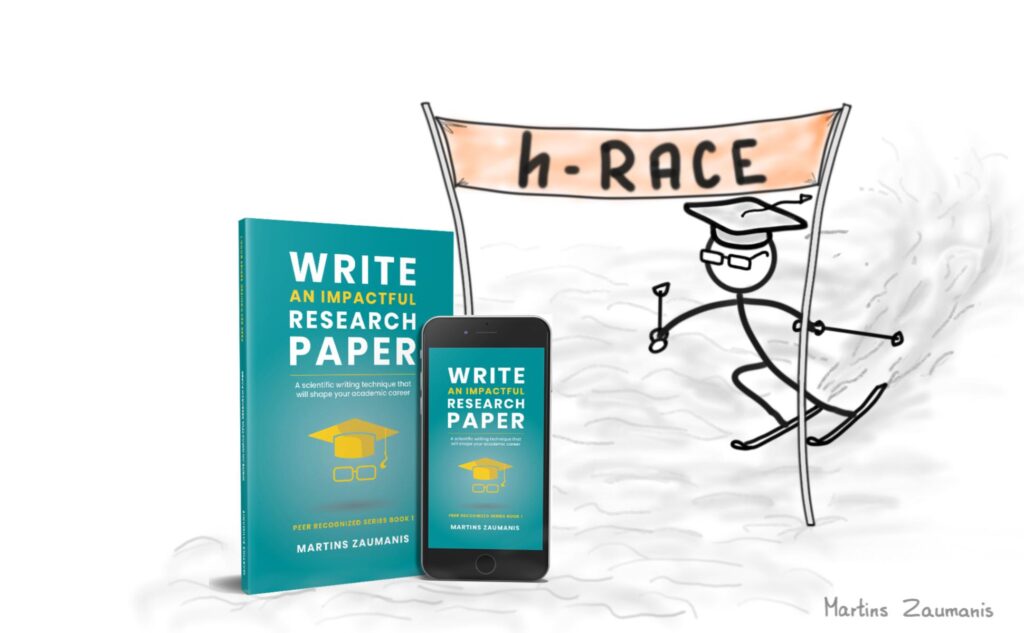
Available on Amazon
Forget the struggles of writing a research paper – there is no need for headaches, self-doubt, and endless revisions. The book “Write an Impactful Research Paper” offers a blueprint for confident scientific writing even if you don’t possess the writing gene. By reading the book, you will learn:
✓ How to become a prolific writer using four research paper writing steps called “LEAP”
✓ How to make sense of research results and frame a core message that convinces your readers
✓ How to respond to vicious reviewers and get your paper accepted at the best journals
✓ Eight unwritten academic publishing rules you should follow to garner numerous citations and succeed in your academic career
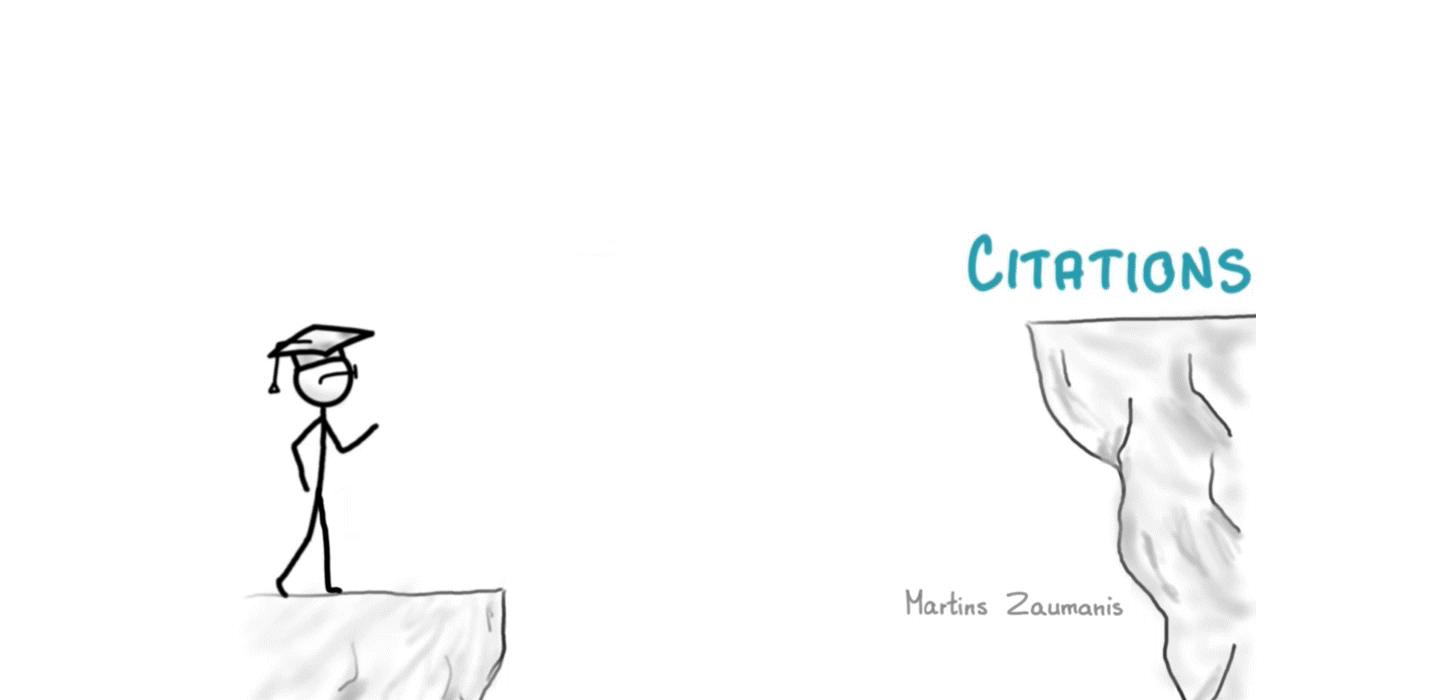
Book contents
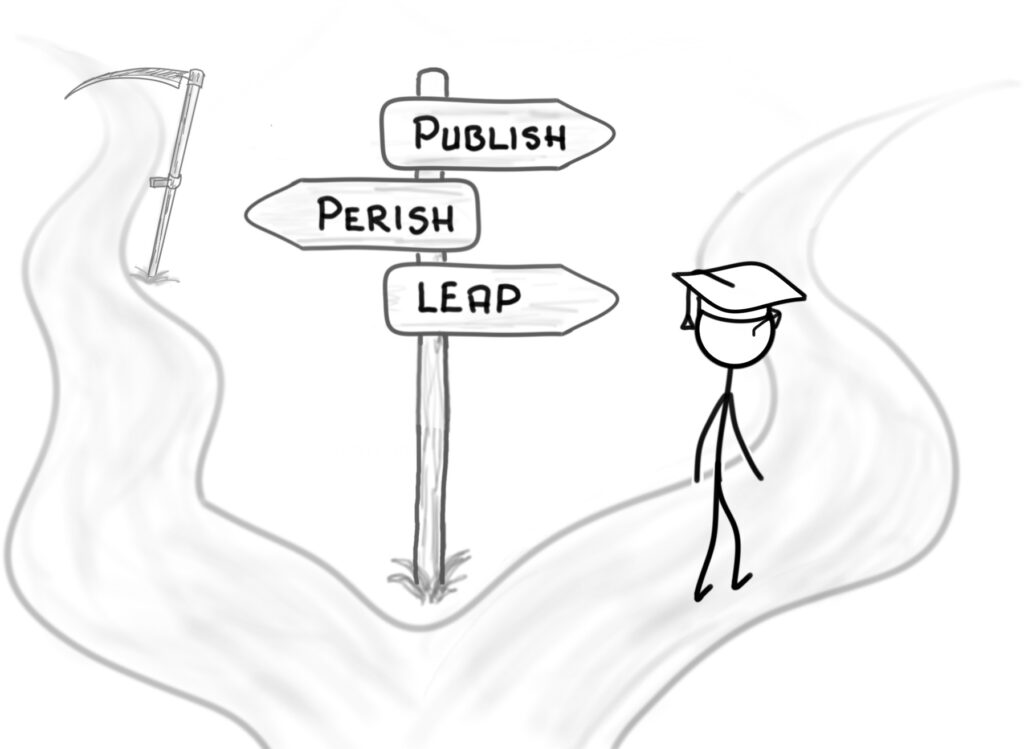
Part I: LEAP research paper writing approach
Take the leap to better writing! The LEAP research paper writing approach provides you with four straightforward progressions for efficiently writing an impactful research paper.

Part II: Unwritten academic publishing rules
In the second chapter you will learn to follow the unwritten rules of the academic world:
- How to respond to vicious reviewers and get your paper accepted at the best journals
- What publishing rules you should follow to garner numerous citations
- How to strategically plan your publishing efforts and become a respected player in the academic job market.
Instead of fearing the writing process, this book will show you how to leverage it as a means of understanding your research results.
What’s included:
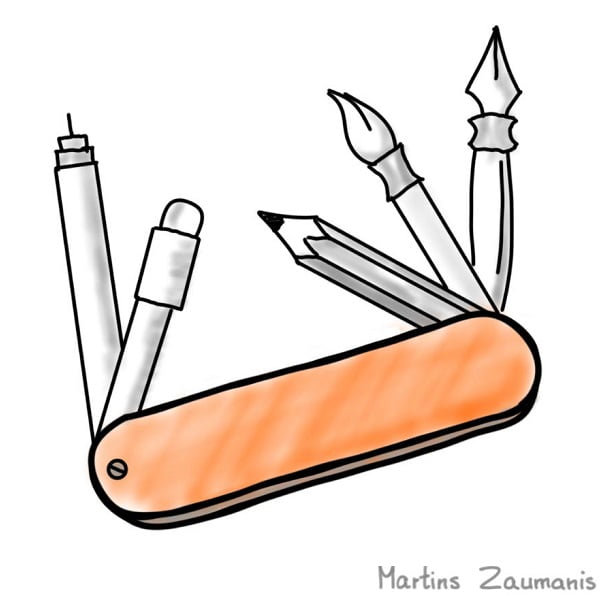
Academic writing tools
You’ll get recommendations on the best tools for journal selection, language editing, collaborative writing, open access publishing, and more.
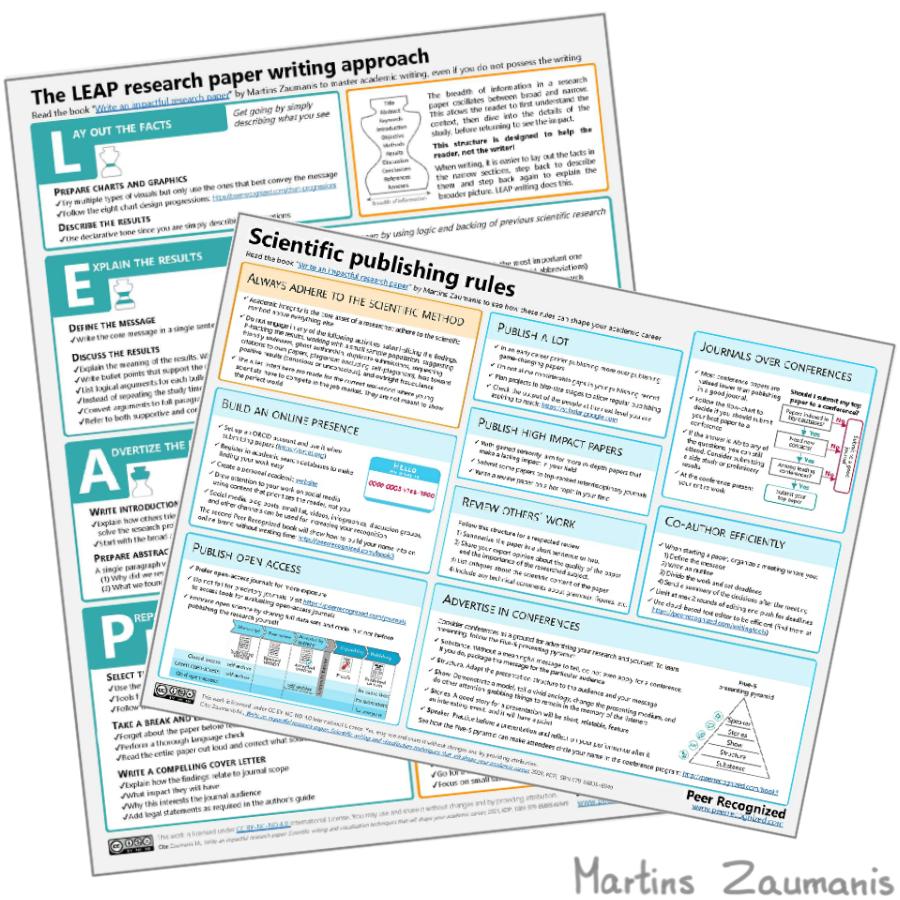
Two printable cheat sheets
Download cheat sheets summarizing the unique advice from the book so you can take a quick peek whenever you need to write a paper.

Templates for publishing
Access pre-formatted MS Word templates for a research paper manuscript as well as a cover letter for sending your paper to a journal editor.
Available on Amazon
What readers say
5.0 out of 5.0 stars
“From the very first pixel on the screen all the way to getting accepted in the most suitable journal, this step-by-step guide shows how to become effective at writing impactful papers.”
Laura Konstantaki, academic writing coach at ETH domain, Switzerland
5.0 out of 5.0 stars
The examples are point on and general at the same time. You will understand that a lot of effort has been given on finding the best example possible … and even more, they are not limited to just one or two subjects or fields. It doesn’t matter from which field you are, you will enjoy reading it and find it useful. The overall content is enough, not to short to leave gaps and not too long to stop you from reading the next section. The wording of the book is not complex so you can concentrate on learning new things rather than decoding authors thoughts. Each section has a summary, so you can easily recall what you have read with just a quick look.
Abbas Solouki, PhD student at University of Bologna, Italy
5.0 out of 5.0 stars
Such a great book! Martin writes in an easy and uncomplicated way, and the reader does not feel overwhelmed by the information provided. I not only fully recommend the book, but I am also anxiously waiting for further ones.
If you want to boost your academic career this is a book that can help you with!
Mayara Sarisariyama, PhD student at Vienna Technical University, Austria
5.0 out of 5.0 stars
“This is a highly recommended book. It’s ideal for both young researchers that just started – or are about to start- writing scientific articles, and senior researchers that want to exploit their writing skills and hence, their scientific contributions. It’s easy to read, well-structured and to the point without being wordy. While reading it you realize that writing articles it’s not rocket science – I used to feel like that. Martins Zaumanis presents a simple but coherent methodology that will guide you through all the steps needed for writing high-level scientific articles. Moreover, it gives you all the tips you need – but might be afraid to ask- for boosting your academic career. “
Ioannis Kousis, Ph.D. fellow at the university of Perugia
What happens if you don’t get the book 🙂
Look Inside the book
About the author
In the fall of 2011, I arrived in the USA from a country that most Americans have never heard of, Latvia. I was supposed to start working on my PhD but I had no research topic and no idea what to do next. Then, luckily, on a visit to New York City, I met a businessman who had somehow read and liked my Master’s thesis and just like that – I had a topic, a mentor, and a sponsor. Just imagine the power of publishing – a stranger had read my work, didn’t care about my broken English or where I was from. He was ready to help because of it.
From that point on, no one has had to convince me of the value of producing research papers. Nevertheless, writing my first articles took forever. Literature was far from my favorite subject in high school and not much changed during my undergraduate studies. I thought that writing was just not compatible with me. Hell, back then, I hadn’t even seen a journal paper since my university didn’t have a subscription to any scientific databases. As far as I can recall, the first time I ever read a journal paper was some point into my Master’s studies.
When writing those first papers, I felt insecure revealing everything that I knew (and didn’t know) for anyone to read then, or at any time in the future. It was much easier to hide in the lab performing experiments. Plus, since I never taken a writing class, I had no idea of the structure research papers must follow or what this whole peer review thing was about?
But I soon realized that there is simply no way to become a scientist without good writing skills. So, I put a conscious effort into acquiring them. The emphasis here is on the word skills because, as you see from my experience, I had no inherent talent for writing. Instead, I learned from books that explained scientific writing, took writing classes, and interrogated journal editors and accomplished scientists who have published in Nature. Most importantly – I wrote. A lot.
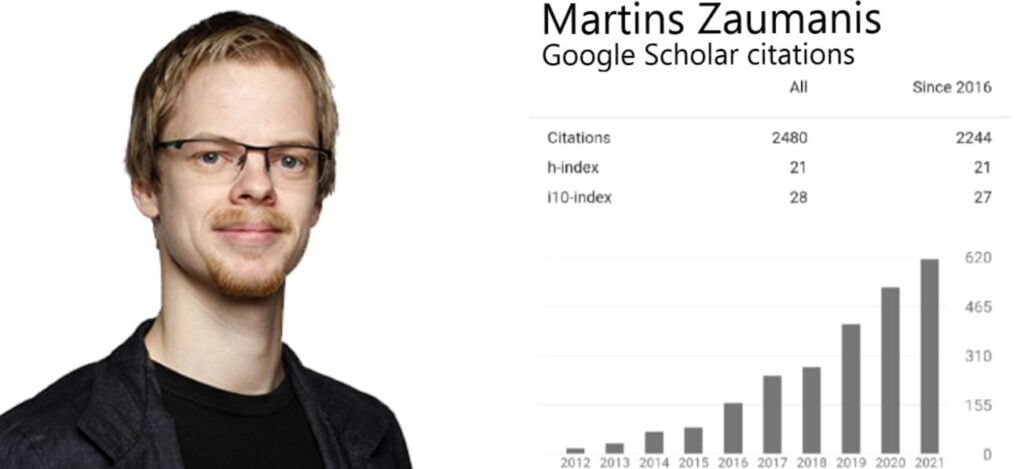
Fast forward to 2021, where I have developed a paper writing approach that I believe is superior to anything that I have seen. The approach not only helps to write; it also helps to come up with the content itself. In other words, I now use writing as a tool for thinking about research results.
Once dreaded, writing papers has now become one of my favorite tasks. Six years after graduating with a PhD, I had authored of 60+ peer-reviewed journal publications, including 34 as the first author. I feel butterflies in my stomach and a sense of pride every time someone cites one of my papers. Plus, as an added bonus, I often have the chance to engage in personal exchanges with people who have read them. Who knows what opportunities might continue to arise from such interactions this time…?
I work at one of the world’s best research institutions – Empa in Switzerland. One of the primary reasons I got here was my publishing record. This book holds the secrets to everything I have learned about writing papers. Unlike me, you will not have to spend years attending courses and asking silly questions to journal editors. Everything you need to know about writing research papers is summarized in this book.
The Peer Recognized book series
Eventually, there will be six books in the Peer Recognized book series, each of which will focus on one of the primary academic communication skills that will help to build an academic career. As you can see in the figure, the books are arranged in a sequence that reflects the needs at the different stages in an academic career. Depending on your career stage, choose which one to read.

“Write an Impactful Research Paper” is the first Peer Recognized book and you already saw what to expect from it. Here is more information about the other five books in the series:



